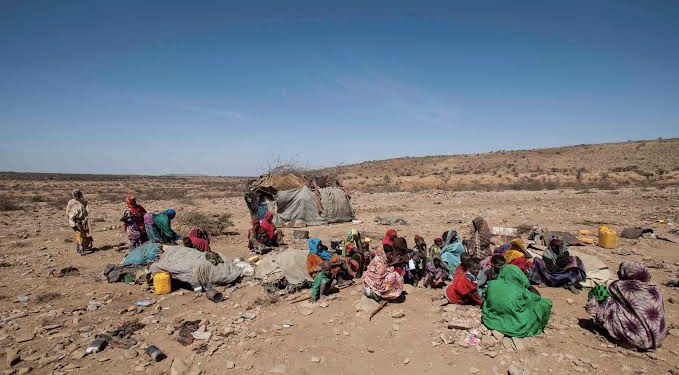
The International Organisation for Migration (IOM) on Friday appealed for 66 million dollars to reach more than 1.25 million people in Somalia with humanitarian assistance by February 2023.
The UN migration agency said in a statement that it needed immediate funding to continue essential life-saving programs and help communities adapt and withstand future shocks.
The response by IOM and its partners is preventing the worst outcomes, but the needs are rising fast as the drought situation worsens.
The UN estimates that more than 7.1 million people, nearly half of the total population, are facing historic levels of drought in Somalia.
The UN Office for the Coordination of Humanitarian Affairs (OCHA) confirmed it had received 260 million dollars for Somalia humanitarian relief responses in 2022.
“For facilitating efforts to provide immediate and life-saving assistance to over 2.8 million people who have been affected by the ongoing devastating drought in the country.”
The IOM said it is scaling up its response and has assisted more than 350,000 people affected by the drought, the worst seen in decades following the fourth consecutive failed rainy season.
“Nearly 800,000 people have been displaced due to drought since early 2021, at least half a million of them in the first four months of this year. Women and children make up 80 per cent of the newly displaced population,” it said.
Extreme dry conditions are deepening Somalia’s decades-long humanitarian crisis caused by conflict, instability, recurrent weather shocks and disease outbreaks.
“Acute water shortages, the death of livestock, approximately three million, and rising food prices aggravate the needs of millions of people who urgently need support.
“The country is facing a potential fifth failed rainy season later 2022, a climatic event with potentially fatal consequences if urgent action is not taken.
“Somalia is on the front line of climate change with weather patterns becoming more unpredictable each year.
“The climate crisis is outpacing some of the efforts being taken to save lives and livelihoods in the country,” the IOM said.
It said food, water, health care and shelter remain the most immediate needs with 213,000 people experiencing extreme levels of hunger.
(Xinhua/NAN)

